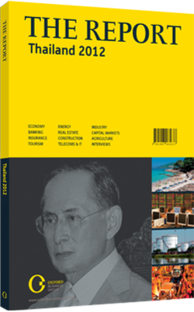Back to business: Rebuilding international standing
The 2011 elections gave the government a strong mandate to regain a proactive international role, stressing commitment to democracy, justice and reconciliation. Following the 2006 military coup d’état, Thai prime ministers were denied meetings with the US president, a historically routine matter for a close US ally in Southeast Asia. The November 2011 meeting between Prime Minister Yingluck Shinawatra and President Barack Obama at the East Asia Summit, just three months after her appointment, was a clear endorsement of Thailand’s return to a democratic process.
Membership in ASEAN has been important to the country’s global positioning, and Thailand’s economy and geographic location made it a leading player in the organisation prior to 2006. Speaking with OBG, Sihasak Phuangketkeow, the permanent secretary of the Ministry of Foreign Affairs, reinforced Thailand’s commitment to ASEAN and integration with East Asia. “Promoting ASEAN in the region is one of our key foreign policy objectives while moving beyond the immediate parochial interests of Thailand itself,” he said.
Thailand’s preference for ASEAN to be a central force for broader free trade in the Asia-Pacific region would allow the organisation to balance the economic interests of China, India and the US, which had pushed for Thailand’s inclusion in the latest multilateral free trade agreement, the Trans-Pacific Partnership (TPP).
WELL PLACED: Thailand’s strong political and trade relationship with Myanmar, now increasingly attractive to global investors, are an advantage. Thailand’s support for a transition to greater democracy and international engagement in Myanmar has helped to position Thailand as the gateway to this emerging economy.
Establishing deeper ties with Myanmar also supports growth of the Southern Economic Corridor, which brings India into the fold, linking it with ASEAN and China. Thailand and India are strengthening their relationship and working to establish reciprocal economic ties. Successful integration on Myanmar into the arena is expected to benefit regional economic flow on the whole.
DIPLOMATIC RESPONSIBILITY: To the east, relations with Cambodia remain strained following bitter military skirmishes over the Temple of Preah Vihear in 2010. Goaded by right wing elements, the Thai government allowed the conflict to spill over into the UN Security Council, the International Courts of Justice (ICJ) and UNESCO in 2011, undermining Thailand’s international credentials. Representing Thailand at the UN, Sihasak acknowledges that the politicisation of the issue is the reason behind the international intervention. Both Thailand and Cambodia have maintained a ceasefire since 2011 and await the final ICJ ruling on ownership of the temple’s 4.6-sq-km grounds. “Eventually the court will decide, but both sides must recognise that our relationship will have to move forward,” Sihasak said.
“We have to bring Thai foreign policy into a new era by looking beyond Thailand, by looking at how we can contribute to the broader issues of the international community to deal with global challenges,” Sihasak told OBG. “I would like to see our foreign policy clearly raise the banner of democracy, human rights and humanitarian principles. These are important values shared by the international community and should be reflected in the conduct of our own foreign policy.”
BACK TO BUSINESS: The government knows that a strong diplomacy record and high international standing will also open doors for Thai business. The efforts made by the former premier Abhisit Vejjajiva to expand business opportunities were frustrated by uncooperative coalition parties and a weak parliamentary majority slow to act due to a number of political issues.
However, the renewed push for international engagement and expansion has allowed Thailand to close a number of free trade agreements and other ties with African and Latin American countries over the last five years. Pheu Thai’s parliamentary majority and return to a more democratic political process has helped rebuild investor confidence after six years of instability and the 2011 floods. It is clear that within the global and economic arenas, Thailand is getting back to business.
You have reached the limit of premium articles you can view for free.
Choose from the options below to purchase print or digital editions of our Reports. You can also purchase a website subscription giving you unlimited access to all of our Reports online for 12 months.
If you have already purchased this Report or have a website subscription, please login to continue.

